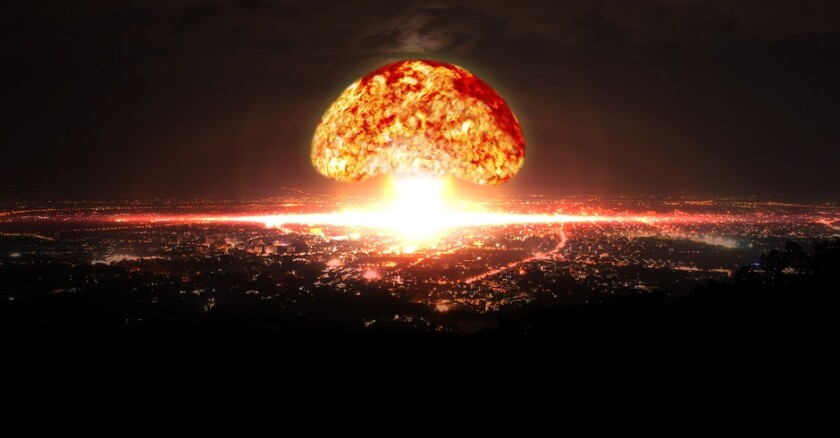A story by Lauren Baggett on the school’s website, http://www.uga.edu/, says researchers analyzed survey responses from more than 400 emergency medical personnel in the U.S. and Asia to find out if medical professionals would show up to the site of a nuclear attack and, if they did, whether or not they know the appropriate treatment protocols.
Their findings were published in Frontiers in Public Health, http://journal.frontiersin.org/article/10.3389/fpubh.2017.00202/full.
"I was not surprised that the responses from the emergency medical community were relatively poor in terms of knowledge and attitudes, because that's what you get with radiation-myths versus reality," said the study's lead author, Cham E. Dallas, a UGA professor of health policy and management.
He is also director of the Institute for Disaster Management at UGA's College of Public Health.
Baggett’s report says more than half of the respondents hadn't received any formal education on issues related to radiation, and many thought that the immediate medical need after a Hiroshima-sized nuclear detonation would be thermal burns when, in fact, patients are more likely to need treatment for lacerations.
When asked to rank what type of disaster event would make them unwilling to come to work, respondents chose nuclear bomb.
"What we found was that medical personnel were actually more afraid of radiation than they were of biological or chemical events," said Dallas in the report.
This study suggests that emergency medical personnel, despite access to nuclear disaster training, view nuclear events with the same fear and misunderstanding as the general public. Dallas believes this may be because nuclear events are rare, and most providers have no firsthand experience. They fear what they don't know.
"The interesting thing is these are tough characters. These are people who see trauma and death all the time," said Dallas. "They're tough, but not with radiation."
In Baggett’s report, Dallas points to Hollywood's treatment of nuclear events. Most of what people see on television or in movies, he says, is incorrect and reinforces a view that little can be done in the face of a nuclear event. That's the key assumption Dallas wants to correct.
"As terrible as it might be," he said, "it's far more manageable than emergency professionals realize."
Experts agree that a radiological or nuclear event is inevitable, so health care professionals can't afford to be unprepared, said Dallas.
Co-authors on the study include Curtis Andrew Harris with the University of Georgia and Kelly R. Klein, Thomas Lehman, Takamitsu Kodama and Raymond E. Sweinton, all with the University of Texas Southwestern Medical Center.
Larry Gierer: 706-571-8581, @lagierer
———
©2017 the Columbus Ledger-Enquirer (Columbus, Ga.)
Visit the Columbus Ledger-Enquirer (Columbus, Ga.) at www.ledger-enquirer.com
Distributed by Tribune Content Agency, LLC.







